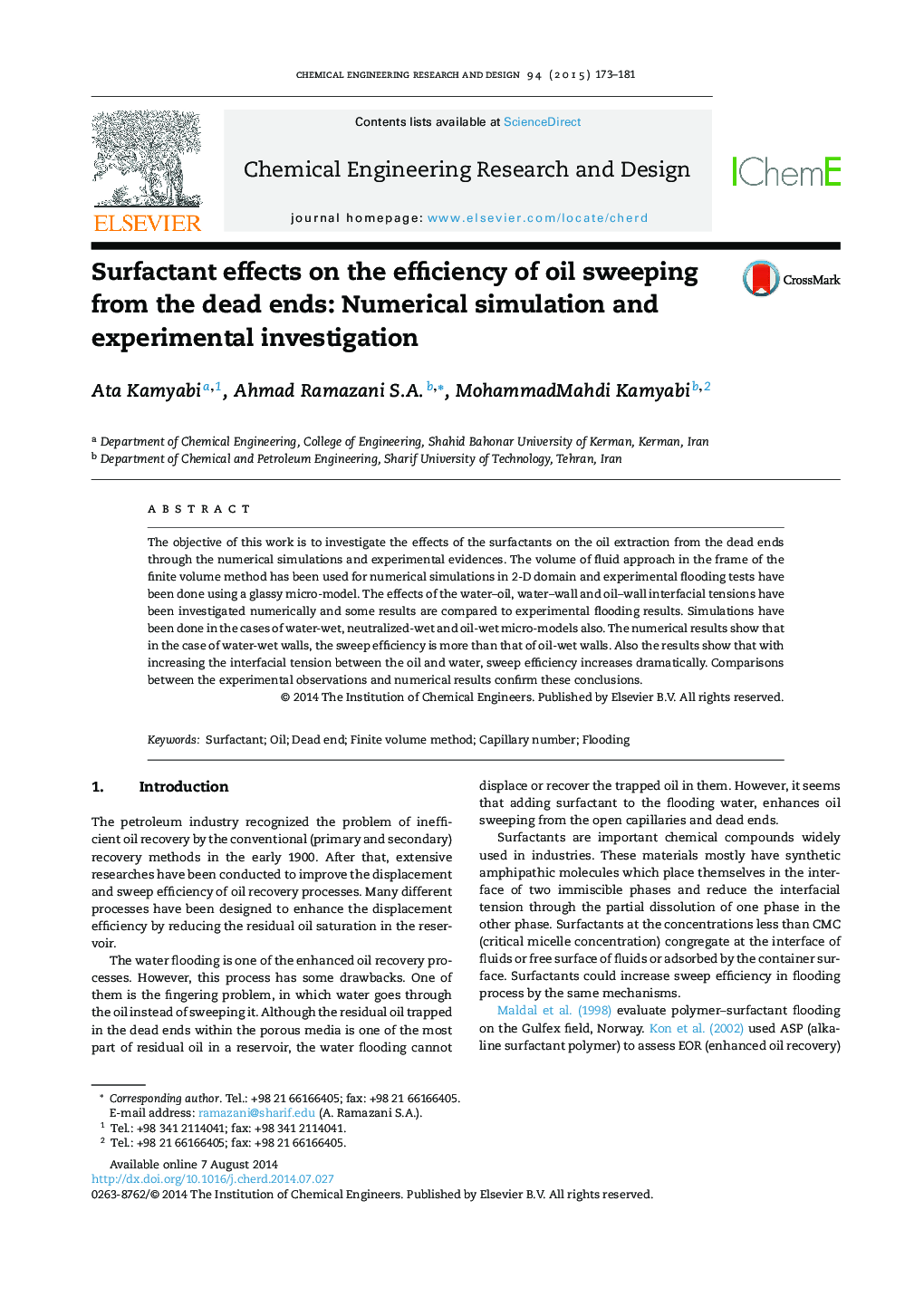| Article ID | Journal | Published Year | Pages | File Type |
|---|---|---|---|---|
| 620439 | Chemical Engineering Research and Design | 2015 | 9 Pages |
•We simulate flow of water and surfactant through capillaries connected to dead-end.•We study and simulate effects of the surfactant on the oil sweep efficiency.•We compare simulations with experiments.•In the water-wet model, sweep efficiency is more than that of oil-wet.•At low Ca numbers sweep efficiency is more than that of high Ca numbers.
The objective of this work is to investigate the effects of the surfactants on the oil extraction from the dead ends through the numerical simulations and experimental evidences. The volume of fluid approach in the frame of the finite volume method has been used for numerical simulations in 2-D domain and experimental flooding tests have been done using a glassy micro-model. The effects of the water–oil, water–wall and oil–wall interfacial tensions have been investigated numerically and some results are compared to experimental flooding results. Simulations have been done in the cases of water-wet, neutralized-wet and oil-wet micro-models also. The numerical results show that in the case of water-wet walls, the sweep efficiency is more than that of oil-wet walls. Also the results show that with increasing the interfacial tension between the oil and water, sweep efficiency increases dramatically. Comparisons between the experimental observations and numerical results confirm these conclusions.
